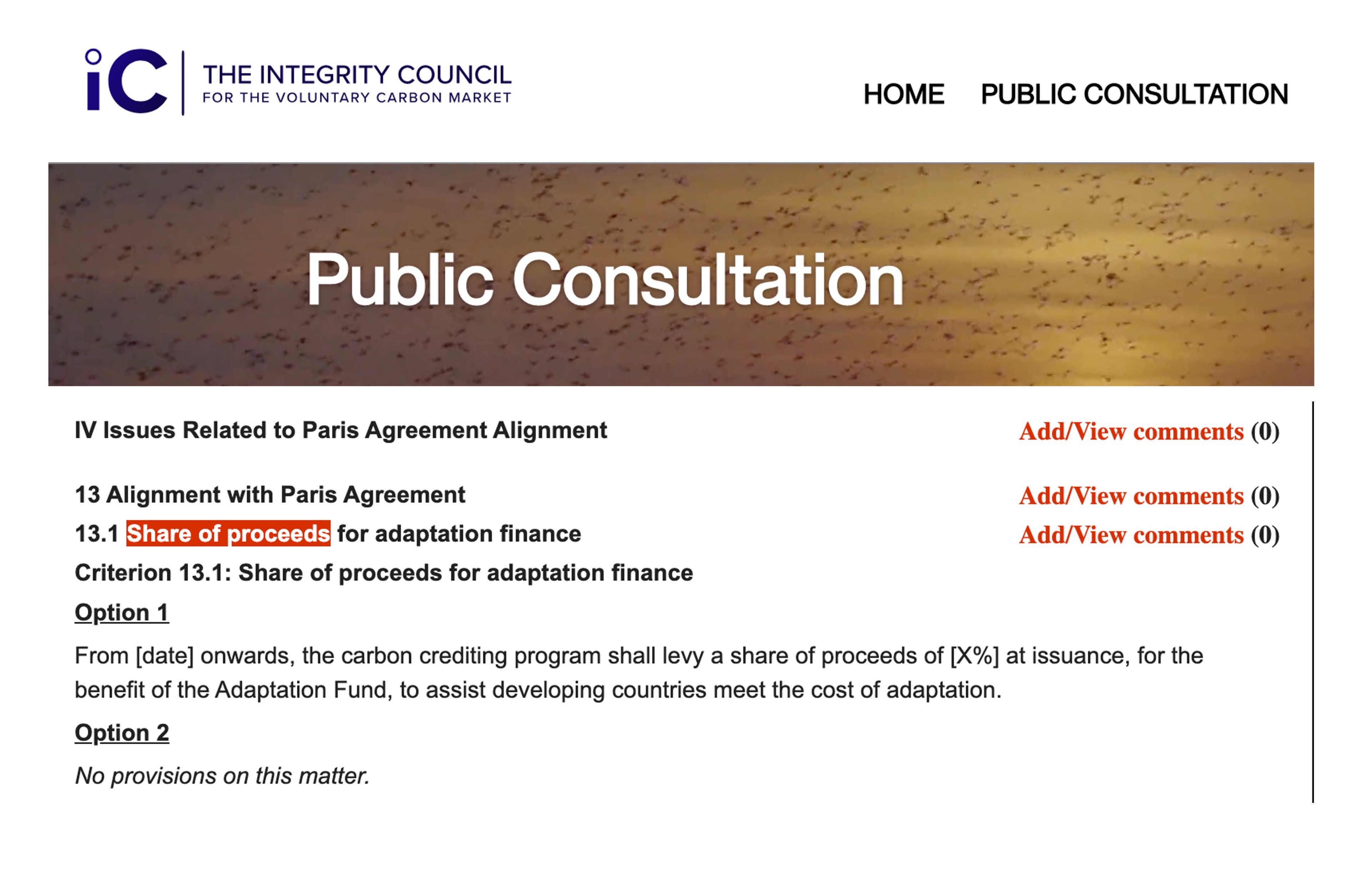
On 27 July, the IC-VCM launched a 60-day public consultation on its draft Core Carbon Principles (CCPs), Assessment Framework and Assessment Procedure. Professor Benito Müller, on behalf of OCP/ecbi, provided the following input on the inclusion of a Share of Proceeds for Adaptation (SOPA) among the CCPs.
OCP/ecbi Input
“Alignment with the Paris Agreement is a very important, but my no means the only, reason for introducing a market-wide 5% Share of Proceeds for Adaptation (SOPA). Another, arguably even more important reason, is to safeguard what has become known as the “Social Integrity” of the Voluntary Carbon Market (VCM) as a whole in the form of a CCP.
Lack or loss of integrity is a reputational risk that potentially jeopardises the very existence of the market in question, particularly if the buyers rely on the reputation of what they are buying, as in the VCM. A credit on sale in a market that lacks integrity is simply not worth buying. However, ‘integrity’ in this context has by and large been interpreted as environmental integrity, meaning that carbon markets should not leave the environment worse off than it would have been without them. The problem with this exclusive environmental focus is that carbon markets can also have negative social consequences which pose an equal reputational risk of lacking in global social integrity. One of these is the risk of leaving behind the poorest and most vulnerable, and thus being perceived solely as a tool that reduces the cost of the rich polluters to reach their mitigation targets. The SOPA is also an expression of the “principle of common but differentiated responsibilities and respective capacities,” as it allows all poor and vulnerable countries to participate in the benefits of global carbon markets.
Adopting a SOPA as best practice (i.e., a Core Carbon Principle) in alignment with the Art. 6.4 trading mechanism of the Paris Agreement is a first, tried-and-tested step towards ensuring the social integrity of the VCM as a whole, without having to interfere in market decisions regarding the type or location of credit generating projects (although there is the option of promoting poor and vulnerable host countries with a SOPA exemption, as practised in the CDM).
Introducing a SOPA as part of the Integrity Council for the VCM (IC-VCM) CCPs is both a matter of risk management and an opportunity. On the one hand, it provides a way to safeguard the social integrity of the VCM and to reduce the VCM’s serious reputational risk of just being another polluter club leaving behind the poorest and most vulnerable. On the other, it not only aligns the VCM with the Art. 6.4 mechanism, but provides the opportunity to showcase the VCM as being more socially progressive than Art. 6 of the Paris Agreement (which did not manage to include a SOPA in Art. 6.2).
Finally, regarding the way forward, what we need now is to adopt a SOPA following the model of the Paris Agreement which allows for a speedy tried-and-tested operationalisation. We need to hit the ground running. There will be ample time to modify the operational model if needed afterwards.”
For these reasons, the following slightly amended version of Option 1 was suggested:
“From January 2024 onwards, carbon crediting programs shall in alignment with the Paris Agreement charge a share of proceeds of five percent at issuance, for the benefit of the Adaptation Fund, to assist developing countries that are particularly vulnerable to the adverse effects of climate change to meet the costs of adaptation.” [Art. 6.6 Paris Agreement]
